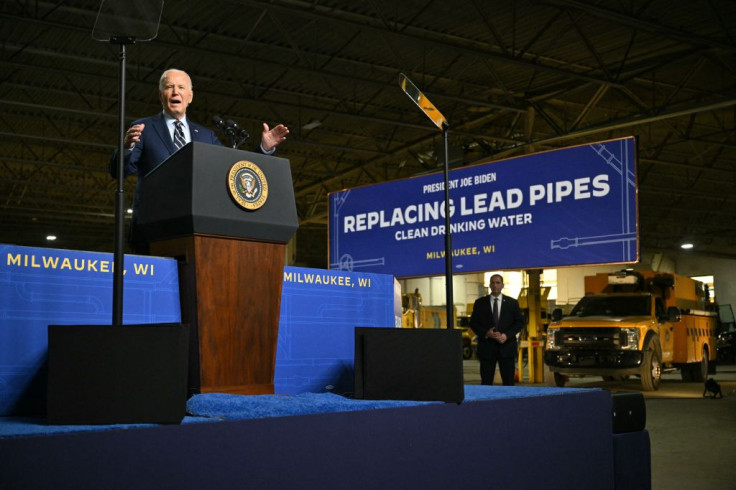
President Joe Biden on Wednesday set a 10-year deadline for American cities to replace their lead pipes — a massive project that an industry group said could cost more than $90 billion, mostly paid for by water customers.
"Folks, what is a government for if it cannot protect the public health?" Biden asked a crowd of union members in Milwaukee.
The largest city in the swing state of Wisconsin has the fifth-highest number of lead pipes in the U.S., according to the Associated Press, which cited data from the Environmental Protection Agency.
Biden's announcement of a new EPA rule governing lead in drinking water came a decade after the water crisis in Flint, Michigan, highlighted the continuing dangers of lead in tap water.
It also came during the closing weeks of the tight presidential campaign and highlighted the issue of safe drinking water, which Vice President Kamala Harris has prioritized in her race against former President Donald Trump.
Exposure to lead can cause a range of disorders and it's especially dangerous to children under the age of six, who can suffer behavior and learning problems, lowered IQs, hyperactivity and slowed growth.
Despite enactment of the Safe Water Drinking Act in 1974, Biden said the U.S. still had more than 9 million lead pipes in use, a fact he called shameful, AP said.
"We're finally addressing an issue that should've been addressed a long time ago in this country,'' he said. "We are showing up as a partner to get it done."
Biden's Bipartisan Infrastructure Law of 2021 provided $15 billion for cities to replace their lead pipes and the EPA is making another $2.6 billion available for drinking water infrastructure to encourage compliance with the new rule, AP said.
The agency is also offering $35 million in competitive grants for programs to reduce lead in drinking water, AP said.
In a statement, the head of the American Water Works Association, which represents water utilities, said that it shared the EPA's desire to eliminate lead pipes and that the federal money would be "helpful in closing the funding gap."
"However, AWWA estimates the cost of replacing lead service lines nationwide could top $90 billion," CEO David LaFrance said. "Ultimately, most of these costs will fall to consumers through higher water bills."







